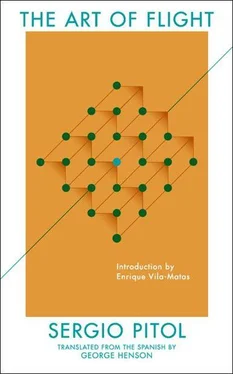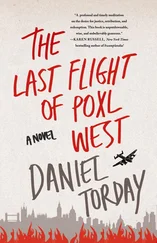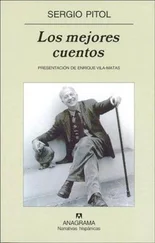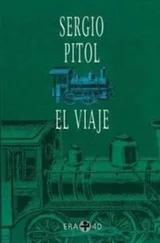Mexico City, November 1991

4 Translated by Hélène Iswolsky
Justo Navarro writes in his prologue to Paul Auster’s The Red Notebook : “You write life, and life seems like a life already lived. And the closer you get to things in order to write them better, to translate them better into your own language, to understand them better, the closer you get to things, the more you seem to distance yourself from things, the more things get away from you. Then you grab onto what’s closest to you: you talk about yourself as you approach yourself. Being a writer is to become a stranger, a foreigner: you have to start to translate yourself. Writing is a case of impersonation, forging an identity: writing is passing yourself off as someone else.”
I recently reread Tonio Kröger , Thomas Mann’s coming-of-age novel, which I had long since forgotten; I considered it a defense of the writer’s loneliness, of the necessary segregation from the world to accomplish the task destined for him by a higher will: “One must have died if one is to be wholly a creator.” 5 Tonio Kröger is a bildungsroman, the story of a literary and sentimental education. But the divorce between life and creation that Kröger proposes forms only the initial phase of the novel; the result of that education favors the opposite solution: the artist’s reconciliation with life.
The Romantics abolished all dichotomies: life, destiny, light, shadow, sleep, wakefulness, body, and writing meant for them only fragments of a hazy, imprecise, but in the end, indivisible universe. The exaltation of the body and the passion of the spirit were their greatest desires. The romantic poet conceived of himself as his own laboratory and battlefield. In this story from 1903, Mann incorporated one of the ideals of the period: the idea of ethics as aesthetics, distancing the spirit entirely from all earthly vulgarity. Symbolism is a late offshoot of Romanticism, at least one of its trends. Tonio Kröger is a writer of bourgeois extraction; it fills him with pride to live only for the spirit, which implies a rejection of the world. He fulfills his destiny with the guilty conscience of a bourgeois who is ashamed of the mediocrity of his environment. Hence his asceticism is carried out with almost inhuman rigor. At the end of the novel, following some experiences that connect him to life, Kröger reveals to his confidante, a Russian painter, the conclusion to which he arrives: “You artists call me a bourgeois, and the bourgeois feel they ought to arrest me… I don’t know which of the two hurts me more bitterly. The bourgeois are fools; but you worshippers of beauty, you who say I am phlegmatic and have no longing in my soul, you should remember that there is a kind of artist so profoundly, so primordially fated to be an artist that no longing seems sweeter and more precious to him than his longing for the bliss of the commonplace. I admire those proud, cold spirits who venture out along the paths of grandiose, demonic beauty and despise ‘humanity’—but I do not envy them. For if there is anything that can turn a littérateur into a true writer, then it is this bourgeois love of mine for the human and the living and the ordinary. It is the source of all warmth, of all kindheartedness and of all humor.” 6End of quote. Tonio Kröger, German writer.
If I confused my recollection of the novel with the image of the writer’s total reclusion, his isolation, it is due in no small part to one of his phrases, “One must have died if one is to be wholly a creator,” which has been quoted a thousand times as an example of the writer’s decision to not commit to anything but himself.
Even if such an attitude is eventually rejected by Tonio Kröger, it is still not surprising to find its echo in Mann’s own reflections on old age. His autobiographical pages show his astonishment in the face of his popularity; the warmth with which he is treated by family, friends, and even strangers does not appear to reconcile with the reclusion that was necessary for him to complete his work. The reaction of the elderly Mann is much more convincing than Kröger’s final confession, where his love of humanity disguises a declamatory and programmatic tone that fails to touch the depth of the complex relationship between writing and life. “You move away from yourself when you approach yourself…,” Navarro says. “Writing is impersonating someone else.”
I cannot imagine a novelist who does not use elements of his personal experience, a vision, a memory from childhood or the immediate past, a tone of voice captured in a meeting, a furtive gesture glimpsed by chance, only to incorporate them later into one or more characters. The narrator-writer delves deeper and deeper into his life as his novel progresses. It is not a mere autobiographical exercise; writing a novel solely about one’s own life, in most cases, is a vulgarity, a lack of imagination. It is something else: a relentless observation of one’s own reflections in order to be able to realize multiple prostheses inside the story.
No matter what, the novelist will continue to write his novel. Never mind that other non-literary works may demand his time. He will focus on his story and will make progress on it in his spare time, on weekends, or holidays, but, even if he himself doesn’t realize, he will at all times be implicated secretly in his novel, inserted into one of its folds, lost in its words, pushed by “the urgency of fiction itself, which always carries a certain weight,” 7to quote Antonio Tabucchi.
I imagine a diplomat who was also a novelist. I would place him in Prague, a wonderful city, as is well known. He has just spent an extended holiday in Madeira and attends a dinner at the Portuguese Embassy. The table is a vision of elegance. To his right sits an elderly doyenne, the wife of the ambassador of a Scandinavian country; on the left, the wife of an official from the Embassy of Albania. The tone of the ambassador’s wife is imperious and decisive; she speaks to be heard by those sitting around her. The writer, who has just arrived from Madeira, remarks that he has gotten the better of winter by two months. But he has just begun to talk when she commandeers the conversation to say that the best years of her youth were spent precisely in Funchal. She began her speech not with the city’s gardens, nor in the beauty of the mountains, the seascape, the mild climate, nor with the virtues and defects of its inhabitants, but with its hospitality. She declared that tourism in Madeira had always been very exclusive and as an example of refinement commented that at the Reid they served tea with cucumber and butter sandwiches on dark bread, as was de rigueur in the last century; she spoke at length of her stay on the island where she lived during the war; she said that her father had always been a prudent man, so when the conflict seemed inevitable he decided to move with his family to Portugal, first to Lisbon and later to Madeira, where they settled permanently.
“That is how he was,” she continued, “so excessively prudent that we spent five years away from home without our country ever having declared war. It was as if Madeira remained outside the world; correspondence and newspapers arrived with such delay that when news finally arrived, it was already so outdated that one could scarcely be bothered. We settled in Funchal, which goes without saying; where else on the island would we have done so?”
The guests around her ate and nodded; they were only permitted an occasional comment of amazement or agreement, at most a fleeting question that would encourage her to continue her monologue. She spoke of an outing she once took accompanied by her mother to greet countrymen who were going through difficult times. On that afternoon, she wore an absolutely delightful dress of silk chiffon by Edward Molyneux, a combination of lilac flowers on an ocher background, a pleated skirt, which required yards and yards of fabric for its construction. She met that afternoon the man who would become her future husband, making a vague gesture toward the other end of the table where the ambassador, immersed in gloomy silence, was seated. For a moment, the writer was perplexed; something in the man’s face had changed over the holidays.
Читать дальше













